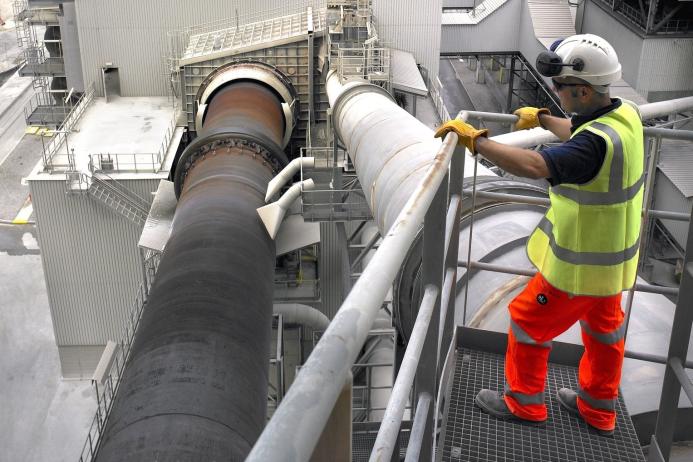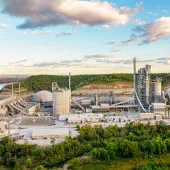Cement sector welcomes Government’s UK CBAM proposal
MPA and UK Concrete call for rapid delivery of the proposal to ‘level the playing field’ for imports
GOVERNMENT proposals for a UK carbon border adjustment mechanism (CBAM) have been welcomed by the UK cement industry but it needs to happen sooner than 2027.
That is the message this week from the Mineral Products Association (MPA) and UK Concrete in response to the Government’s consultation on a UK CBAM, designed to help level the carbon-cost playing field between domestic production and imports.
A CBAM in the UK is also important to reduce the risk of high-emission cement – made using cheaper but less environmentally friendly fossil fuels such as coal – from undercutting domestic production and flooding the UK market.
Cement imports already account for 30% of the UK market (3.6 million tonnes) and, according to analysis from the MPA and UK Concrete, have accelerated in recent years. Cement used in UK construction is increasingly being sourced from outside the EU, from places such as Turkey and North Africa, where decarbonization incentives are not in place so coal is the main source of fuel in cement production.
Responding to the UK Government’s CBAM consultation, the MPA is calling for:
UK CBAM to be introduced in 2026 rather than 2027, as currently proposed, to match the start of the EU CBAM and prevent the diversion of imports in 2026 from the EU to the UK in order to avoid EU charges;
Importers of cement to fully measure and report embodied emissions as domestic producers do;
Clarity on the calculation of CBAM rates to ensure these do not result in under- or over-payment of CBAM liability for different products;
Greater transparency in UK trade data to enable cross-checks of any default values introduced. Currently almost all (95%) of cement imports are listed as being from a ‘confidential country’;
Strict enforcement procedures and high penalties for non-compliance to deter circumvention of the law.
The MPA says that UK cement producers have shown substantial commitments to transitioning to net zero to meet the UK’s 2050 ambition. The rise in cement imports comes at a time when the UK cement and concrete industry has already cut carbon emissions by 53% since 1990.
Dr Diana Casey, the MPA’s executive director for energy and climate change, said: ‘The UK has a great opportunity to accelerate the transition to net zero while securing domestic cement supply for priority construction like housing and infrastructure. However, the policy environment in the UK has left producers facing higher electricity costs and carbon prices compared with competitors elsewhere, which is impacting competitiveness and hindering UK decarbonization.

‘A well-designed CBAM is vital to maintain the level playing field and ensuring competitiveness of domestic cement production while it continues its transition to net zero. A failure to align with EU CBAM 2026 timing will potentially expose the UK industry to a surge in imports.
‘Alongside the CBAM, energy-intensive industrial sites must be supported by enabling government policies and business models for carbon capture use and storage, to support decarbonization and grow the market for domestically produced low-carbon products. The CBAM policy, therefore, does not sit in isolation and urgent clarity around the interaction with free allocation in the UK Emissions Trading System is also required.’
A decarbonized and competitive UK industry is the first of three priorities set out in the recent MPA document ‘Priorities for the Next Government’.










